In YDSE set up (see fig.), the light sources executes SHM between P and Q according to the equation x=Asinωt, S being the mean position. Assume d→0 and A<<L. ω is small enough to neglect Doppler effect. If the sources were stationary at S, intenstiy at O would be I0
Read the paragraph carefully and answer the following questions.
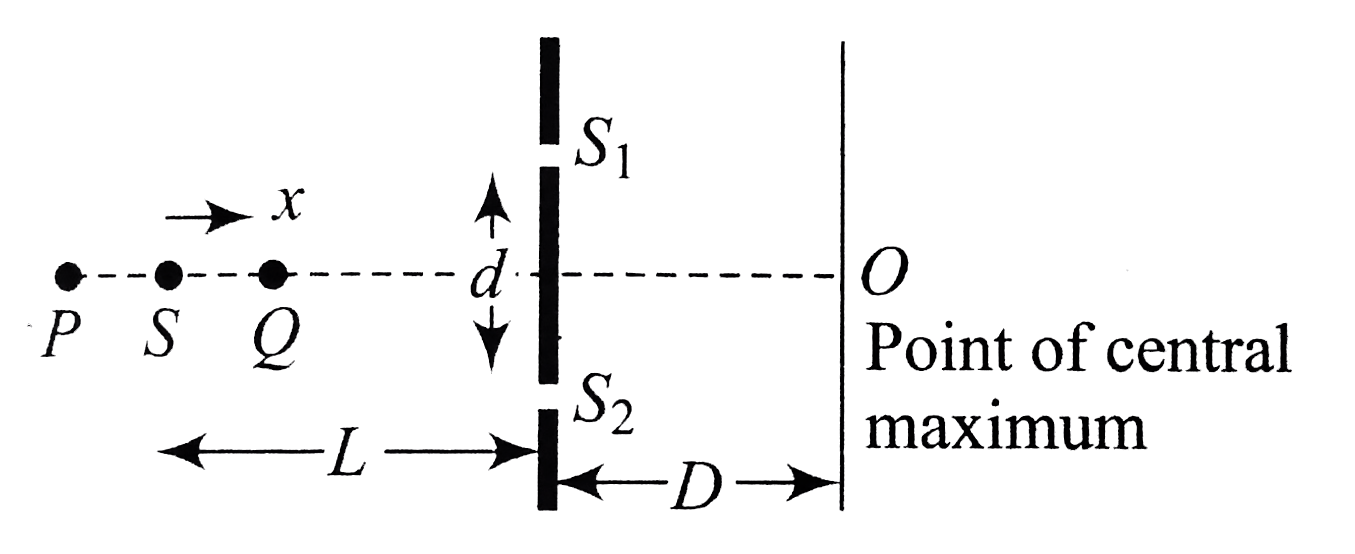
The fringe width β can be expressed as
A
β=β0sinωt
B
β=β0cosωt
C
β=β0sin2ωt
D
none of these
Video Solution
Text Solution
The correct Answer is:d
β=λDd= constant
|
Updated on:21/07/2023
Related Playlists
- BOOK - CENGAGE PHYSICSCHAPTER - WAVE OPTICSEXERCISE - Integer3videos
WAVE OPTICS
- BOOK - CENGAGE PHYSICSCHAPTER - WAVE OPTICSEXERCISE - Archives4videos
WAVE OPTICS
- BOOK - CENGAGE PHYSICSCHAPTER - WAVE OPTICSEXERCISE - Assertion- Reasoning13videos
WAVE OPTICS
- BOOK - CENGAGE PHYSICSCHAPTER - THERMODYNAMICSEXERCISE - QUESTION BANK34videos
THERMODYNAMICS
- BOOK - CENGAGE PHYSICSCHAPTER - WAVESEXERCISE - QUESTION BANK38videos
WAVES
Knowledge Check
- Question 1 - Select One
In YDSE set up (see fig.), the light sources executes SHM between P and Q according to the equation x=Asinωt, S being the mean position. Assume d→0 and A<<L. ω is small enough to neglect Doppler effect. If the sources were stationary at S, intenstiy at O would be I0
Read the paragraph carefully and answer the following questions.
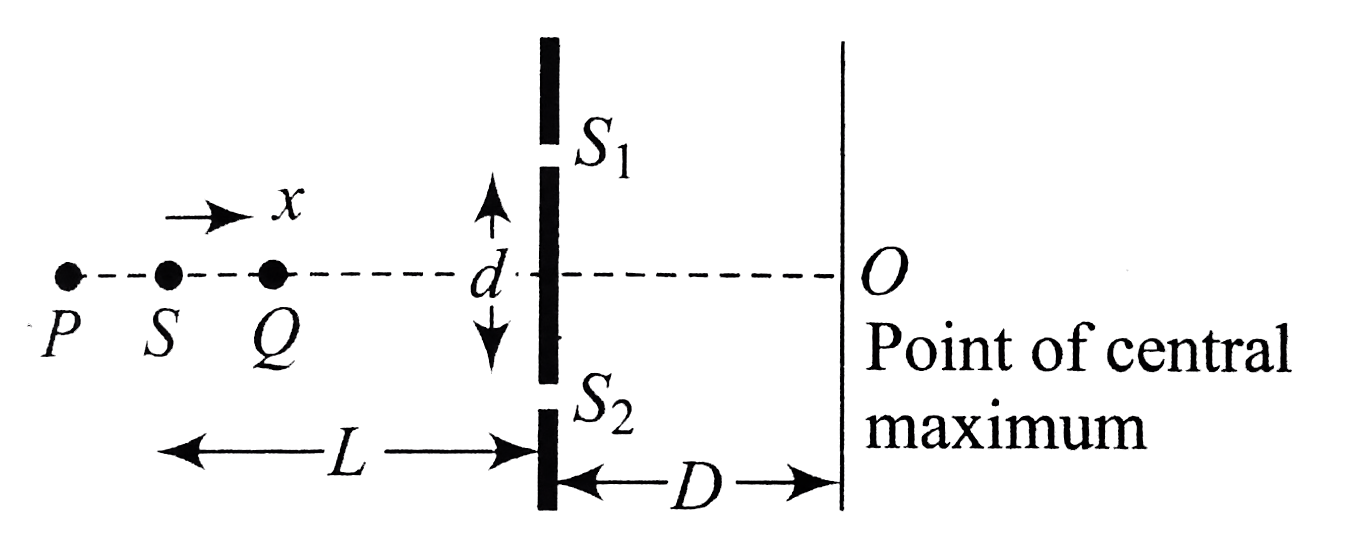
When the source comes toward the point Q,Athe bright fringe will be less bright.Bthe dark fringe will no longer remain darkCthe fringe width will increaseDnone of these - Question 1 - Select One
In YDSE set up (see fig.), the light sources executes SHM between P and Q according to the equation x=Asinωt, S being the mean position. Assume d→0 and A<<L. ω is small enough to neglect Doppler effect. If the sources were stationary at S, intenstiy at O would be I0
Read the paragraph carefully and answer the following questions.
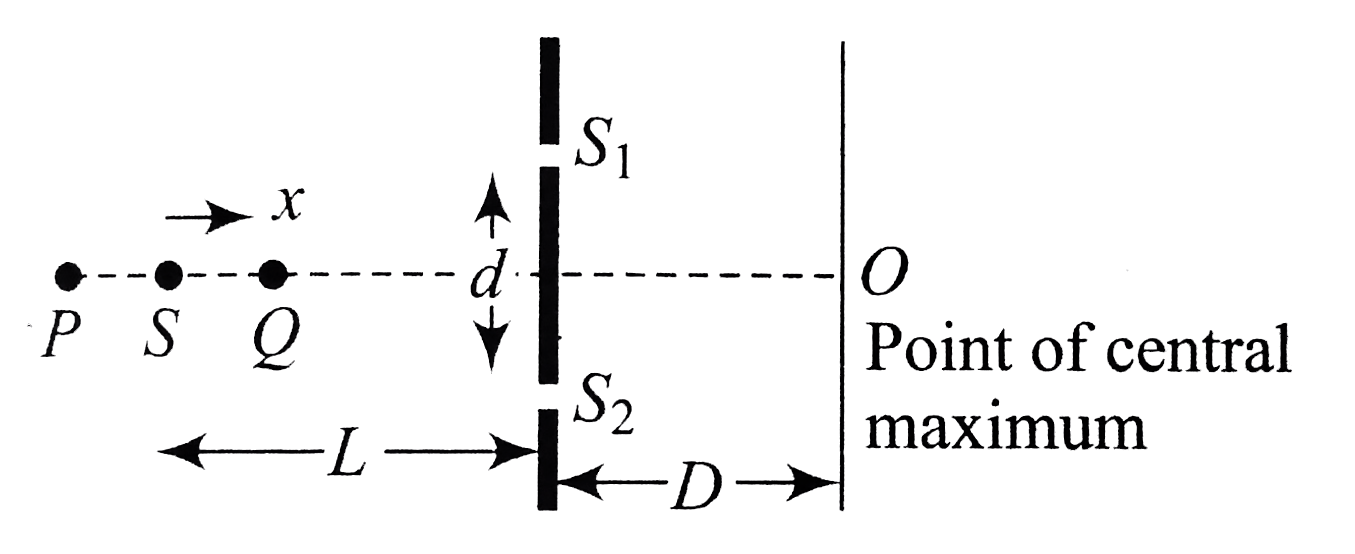
The fractional change in intensity of the central maximum as function of time isAAsinωtLB2AsinωtLC3AsinωtLD4AsinωtL - Question 1 - Select One
An object kept near a convex lens of focal length f, executes SHM between P and Q according to the equation y=Asinωt, O being the mean position. Take x-axis as the principal axis of the lens and A<<D to answer the following questions:
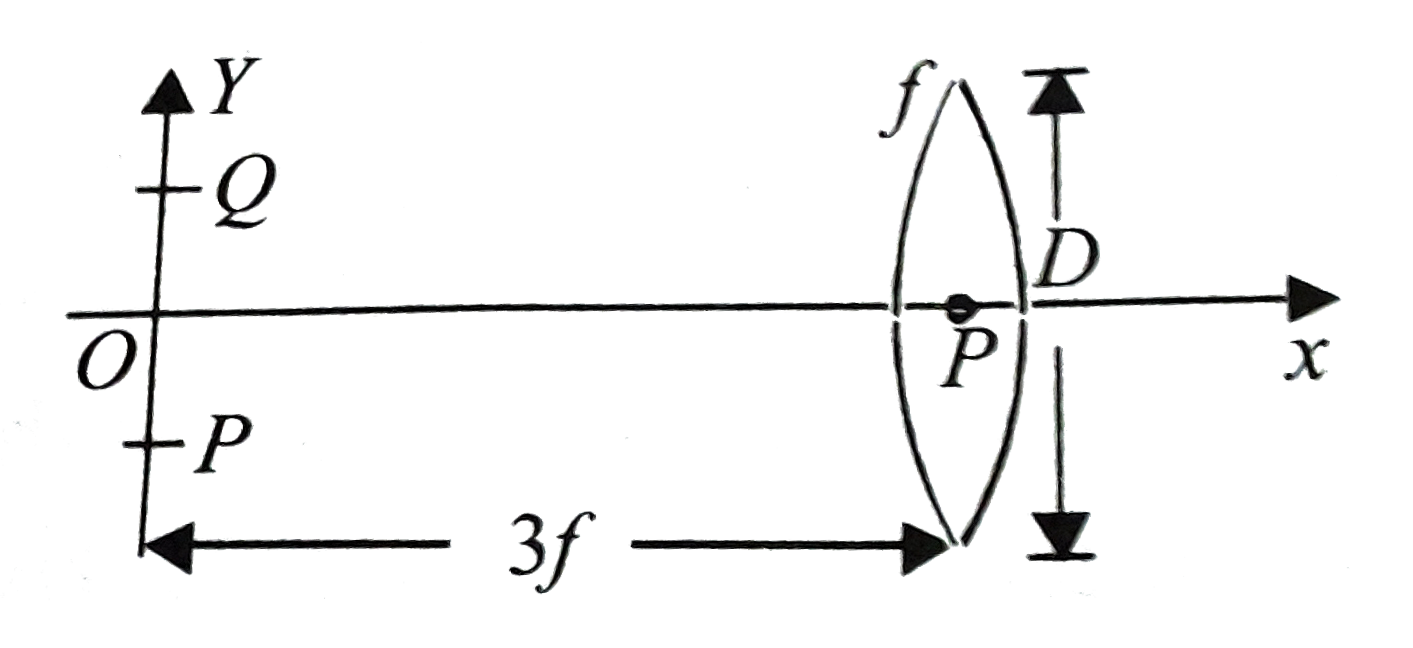
Q. The amplitude of oscillation of the image isAAB2ACA/2DImage does not oscillate - Question 1 - Select One
An object kept near a convex lens of focal length f, executes SHM between P and Q according to the equation y=Asinωt, O being the mean position. Take x-axis as the principal axis of the lens and A<<D to answer the following questions:
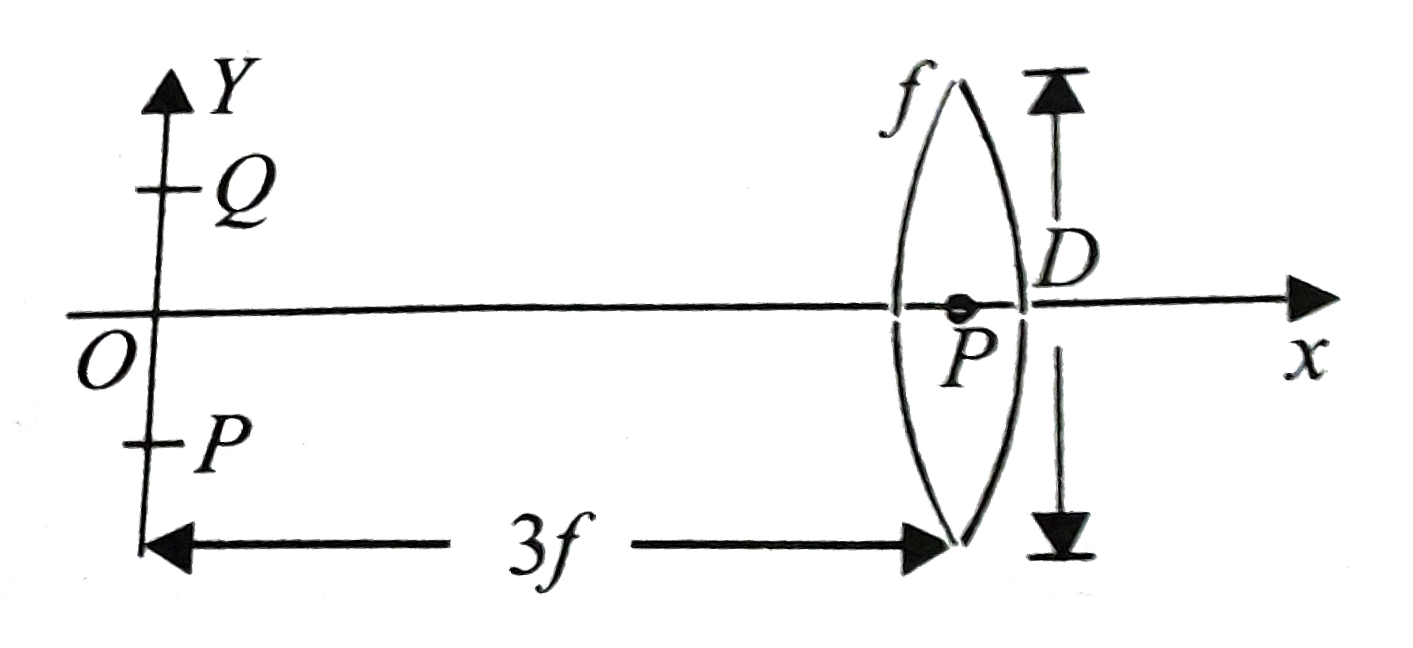
Q. The phase difference between the object and the image oscillations isAπ/2BπC0DNone of these - Question 1 - Select One
A particle is executing SHM according to the equation x=Acosωt. Average speed of the particle during the interval 0≤t≤π6ω is
A√3Aω2B√3Aω4C3AωπD3Aωπ(2−√3) - Question 1 - Select One
An object kept near a convex lens of focal length f, executes SHM between P and Q according to the equation y=Asinωt, O being the mean position. Take x-axis as the principal axis of the lens and A<<D to answer the following questions:
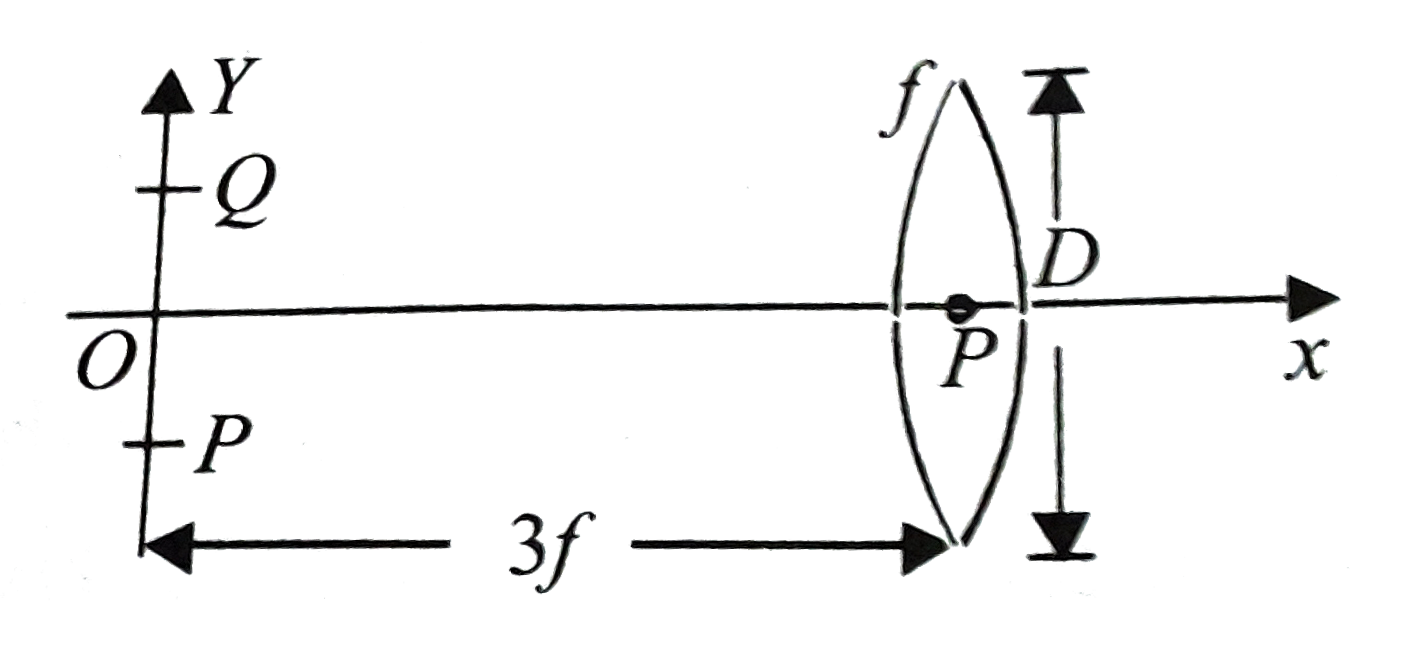
Q. The velocity of the image when the object crosses the mean position and goes toward Q isAAωB−AωCAω/2DNone of these - Question 1 - Select One
A particle is executing SHM according to the equation x=Acosωt. Average speed of the particle during the interval 0←t←π6ω
A√3Aω2B√3Aω4C(√Aωπ)DNone of these - Question 1 - Select One
The SHM of a particle is given by the equation x=2sinωt+4cosωt. Its amplitude of oscillation is
A4 unitsB2 unitsC6 unitsD2√5 units

